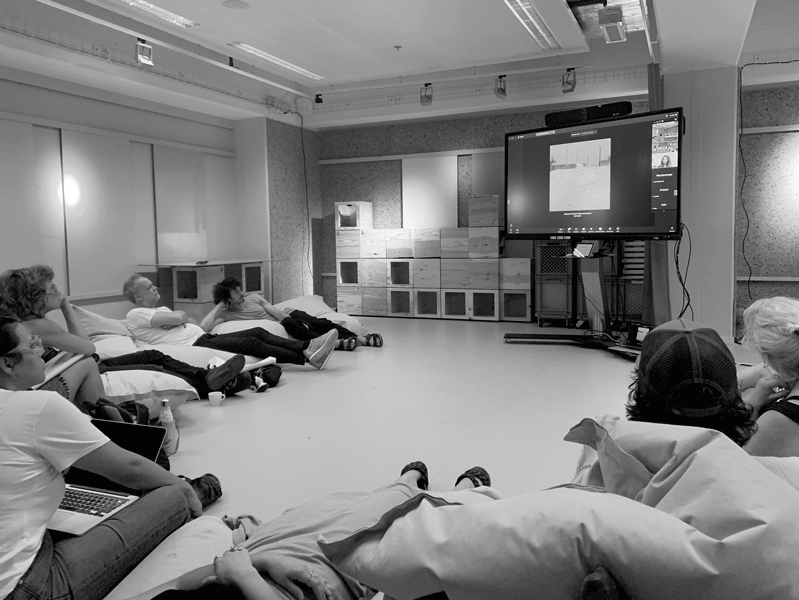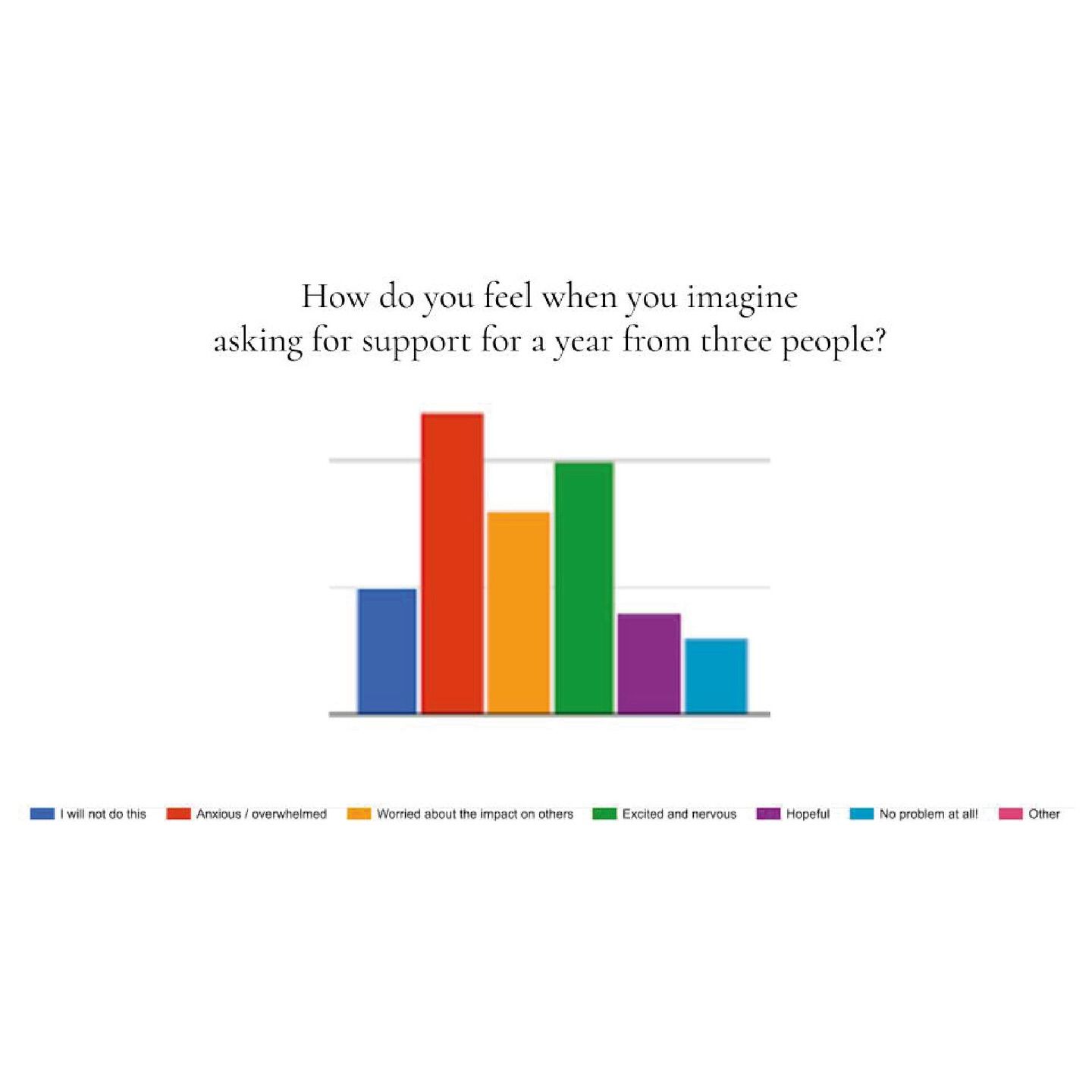Since 2016 a growing group of international collaborators have been formulating and practicing a viral, anti-capitalist, peer to peer mutual aid practice called The Hologram. Now it is a well-worn practice of sustained revolutionary care that is used around the world. Starting in 2020, when we started teaching online courses, many began to practice the protocol of The Hologram in our own lives. We became the first developers and testers of a practice that involves asking for and receiving long term distributed support from people in our communities. We believe that we are now harder to fuck with.
The Hologram (with subtitles)
The premise of The Hologram is deceptively simple: One person invites three people to support them through regular seasonal meetings. These three people – the ‘Triangle’ – meet altogether, digitally or in person, to focus on asking questions about the physical, mental and social health of the ‘hologram’, who invited them. The hologram, in turn, teaches these listeners how to give and also receive care. When they are ready, the hologram supports them to each set up their own triangle of support by three people, and so the system expands. This social technology is based on “The Integrative Model” which was developed in a Social Solidarity Clinic in Thessaloniki, Greece during the height of the financial and migration crisis. In this model, a patient is seen by a doctor, social worker and therapist in one setting. Our research team would like to learn from Integrative Model practitioners and about what they learned and how they changed after providing nearly a decade of free, non-hierarchical, integrated care.
The Hologram practice has lived and mutated through use for over three years among a yet unquantified number of people. Our second set of research questions are for Hologram users, about what happened when they gave or received anti-capitalist, distributed care and attention in a focused way for this time. Our research team of Hologram users would like to spend much of 2024 collecting data from Hologram users. Our team proposes to develop experimental surveys and interviews about what changed for people and their communities when they did ask for, receive, or supply help. Our sense is that when people actually practice.
The Hologram, a different level of communication, curiosity and exchange take place that could be very useful in many group or institutional settings. These qualities of communication and connection gently and subversively dismantle internalized and socialized forms of capitalist, patriarchal and racist behavior. Our final set of questions are about how to present our data in a way that can make The Hologram practice into an accessible idea and tool for pre-existing groups, institutions, and even municipalities.
Cassie Thornton
Cassie is changing. In the apocalypse, everything must change, including us and the work we value and how we value things.
SoC Gathering, 2024
27.06.2024 — 30.06.2024

Reflecting on the SoC Gathering this past week at Zurich University of the Arts. Find out more
The Hologram: Mutual Aid Research
06.06.2024, 19:00–20:00 (CET)

Informal gathering hosted online, open to the public. Find out more
